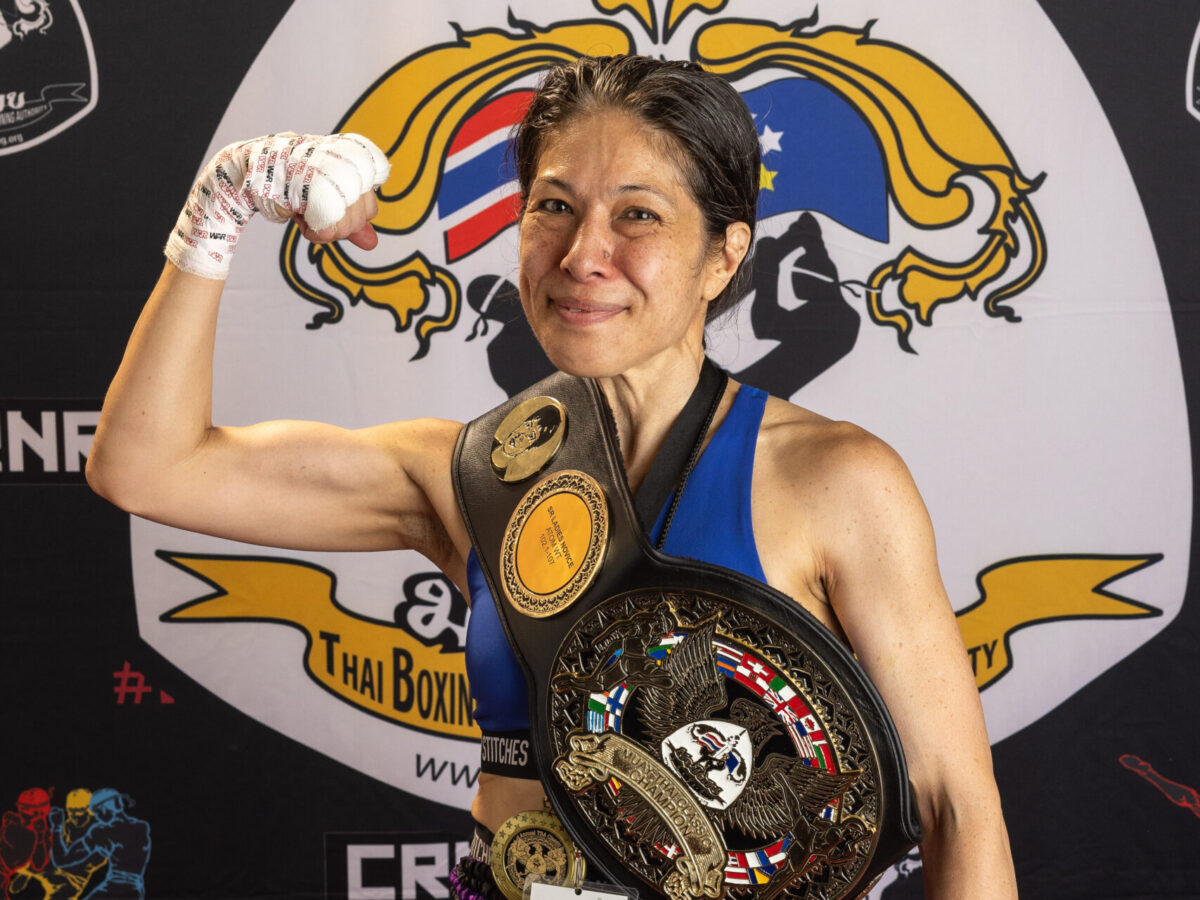Annette Yoshiko Reed ’91: Rediscovered Stories

Annette Yoshiko Reed ’91 examines cultural and religious forgetting.
Though religious historian Annette Yoshiko Reed ’91 studies forgetting, it seems likely that 2025 is one year she will long remember. In April, Reed was named a Fellow by the Guggenheim Foundation for her research into the theory of forgetting as a creative force in religious and cultural traditions. In June, she won her division’s TBA Classic Muay Thai World Championship, defeating women more than a decade her junior. In Reed’s view, one could not have been achieved without the other.
“Things that we do with our bodies remind us that knowledge is about making yourself better,” says Reed, the Krister Stendahl Professor of Divinity and Professor of New Testament and Early Christianity at Harvard Divinity School.
Reed is using her Guggenheim year to expand the Taubman Lectures she delivered in 2018 at the University of California, Berkeley, on what was lost with the disappearance of the Dead Sea Scrolls. The scrolls, a collection of some 900 manuscript fragments, have revealed stories of Jewish religion and culture, both known and unfamiliar, since their rediscovery in the 1940s.
Reed had planned to complete her research in 2020. But the pandemic hit, and she found herself balancing helping her young son master online learning with an unexpected opportunity to reflect on the significance of forgetting and its role in creating cultural change.
To Reed, forgetting is perhaps best exemplified by history’s suppression of an earlier pandemic, the 1919 Spanish flu. Until COVID, a majority of Americans had never learned about the earlier public health crisis because it had no real place in the story of 20th-century America. “The information isn’t gone, it’s just the telling of stories — especially the stories of progress — that displaces it,” Reed says, noting that forgetting too often equals loss of lessons learned, well into the future.
An adult convert to Judaism, Reed pinpoints the origin of her interest in Western religion to Russell Weatherspoon’s classes at the Academy. (To this day, she references texts she used at Exeter — youthful marginal notes and all — in her own teaching.)
Arriving on campus as a 14-year-old Japanese American, Reed says, she knew little about Western religion and literature. But as an avid reader she was drawn immediately to connections between them. “When you start reading religious literature,” she says, “you realize much of what’s so compelling in novels and poetry is entwined with biblical and Jewish traditions.”
If Reed’s pre-Guggenheim research focused largely on tracing the spread of ancient Jewish literature, she is using this year to explore why certain texts and scriptures were lost despite being part of a tradition that has emphasized the importance of remembering. The fragmentary nature of the Dead Sea Scrolls also provides a springboard for considering history in general and the broader responsibility of being a historian.
“What are we doing when we’re talking about the past?” Reed says. “We’re telling bits of stories from different perspectives.” Throughout time, she observes, more people’s narratives have been forgotten than have been remembered — particularly those of women.
After the Guggenheim Fellowship, Reed may make time for another story: a memoir about balancing her successes and challenges in the classroom with those at the gym. She hopes to explore what it means to be a teacher who’s perpetually learning and to use her own history to demonstrate that growth and transformation are goals worth remembering.
This article was first published in the fall 2025 issue of The Exeter Bulletin.